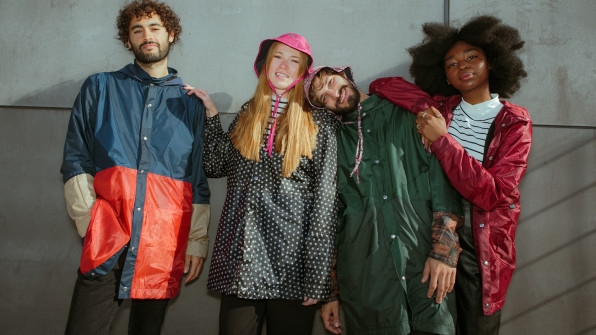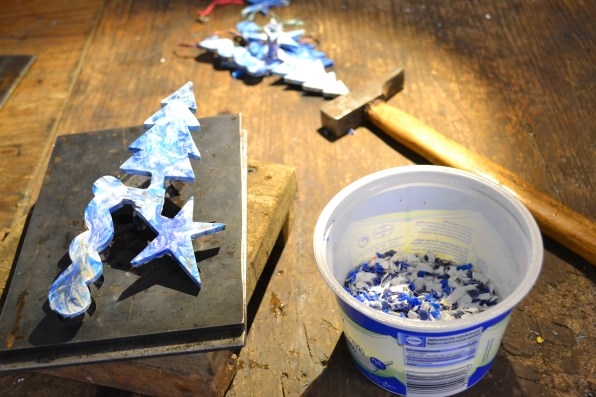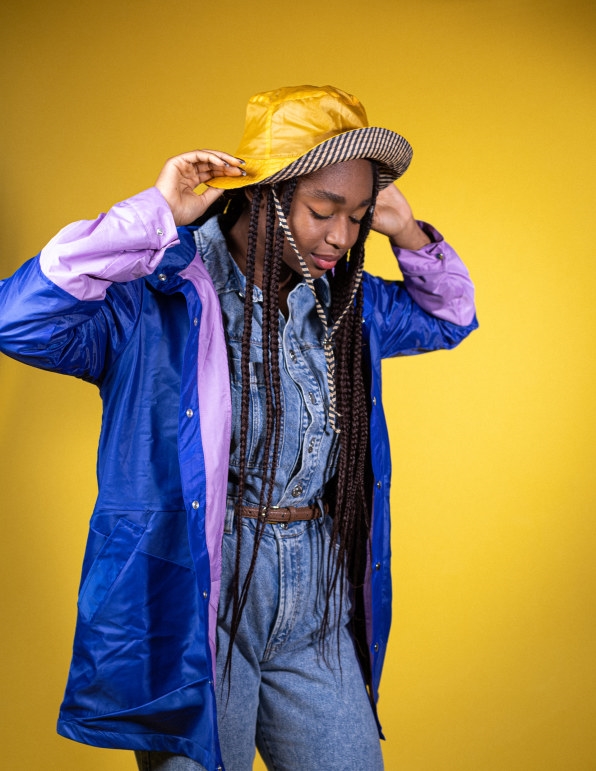Four years ago, Anna Masiello had an epiphany. A whopping 1 billion umbrellas around the world are broken, lost, or discarded ever year. So, Masiello started picking up broken umbrellas from the streets of Lisbon, where she lives, and turning the polyester canopies into jackets.

Since launching her company, R-Coat, in May 2021, she and her cofounder Yasmin Medeiros have repurposed over 2,000 broken umbrellas into wind breakers, hats, and shorts that are lined with dead stock fabric collected from a local textile factory. In November this year, they launched cross-shoulder bags made of the same fabric. Now, the company is offering a collection of tree ornaments for the holidays.

The ornaments are made from recycled detergent bottle lids, while the strings are made from upcycled umbrella fabric. They were designed in partnership with a Lisbon brand called OIA, and they are available in six styles and various marbled colors. It’s a modest drop, but it says a lot about the company’s ambitions. “The brand should be about repurposing materials and proving to people that with creativity and innovation waste doesn’t exist,” says Medeiros.

With a combined expertise in sustainability and design management, the founders design the coats in-house, then work with a seamstress to bring their drawings to life. It takes about five umbrellas to make one coat, and most of them are a patchwork of different colors and patterns. “We like the imperfection, so even when we create a black jacket, it’s not made out of same umbrella, so you see the difference,” says Medeiros. For now, the founders are storing the umbrella’s metal frames in a warehouse, but R-Coat is working with Italian artisans to repurpose them into jewelry.

Naturally, the founders are no longer going around town picking up broken umbrellas. Instead, they have a network of collection points that are scattered around Portugal—universities, eco-stores, and fashion showrooms. For now, the network includes 30 collection points, and even though they are getting requests for drop-off points in France and the U.S., the founders are waiting to expand until they can figure out a sustainable way of doing so. As Medeiros puts it: “We will grow when we find more sustainable logistics.”
(20)